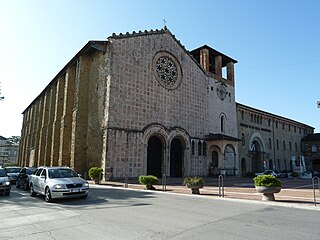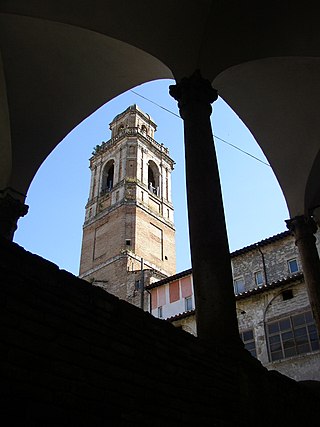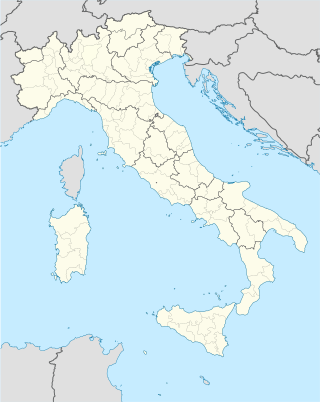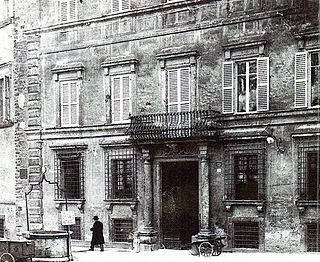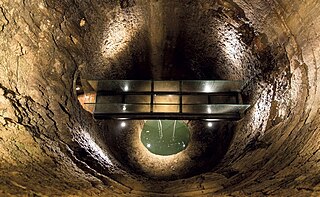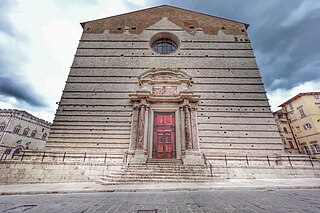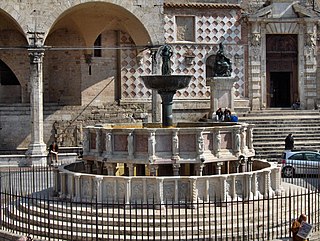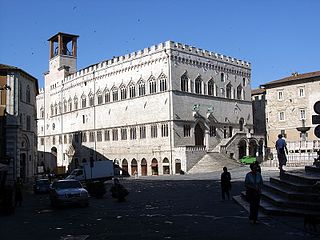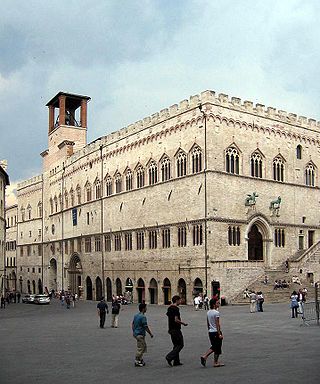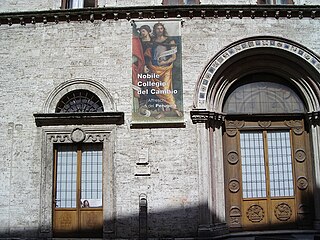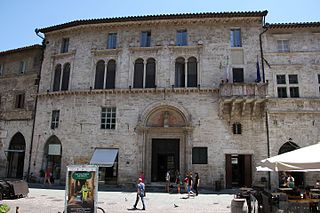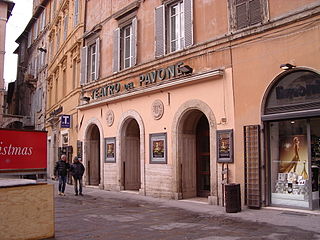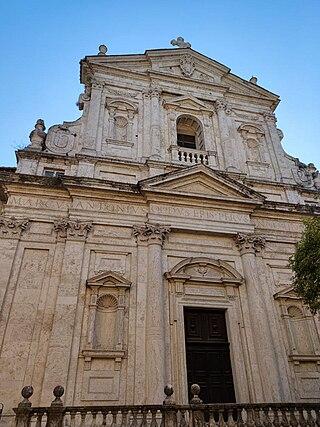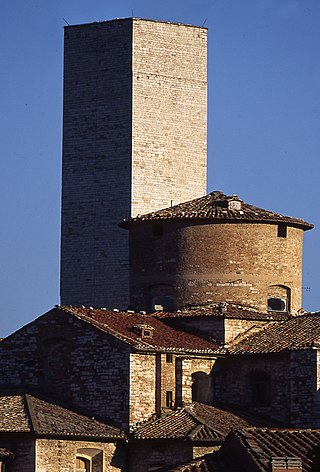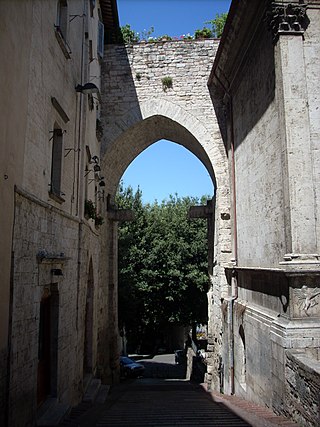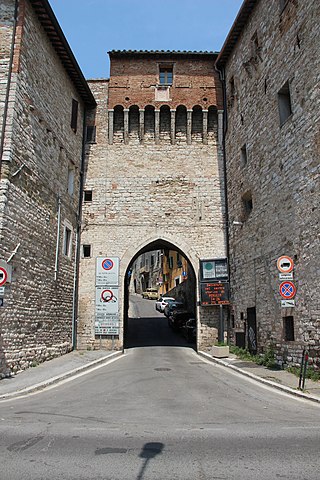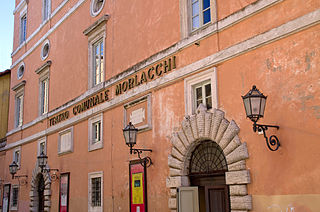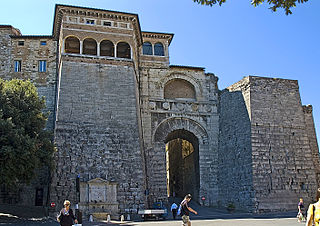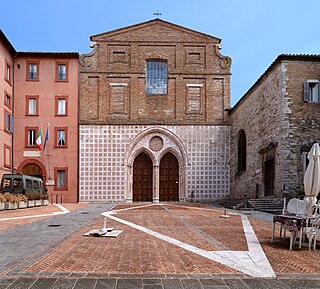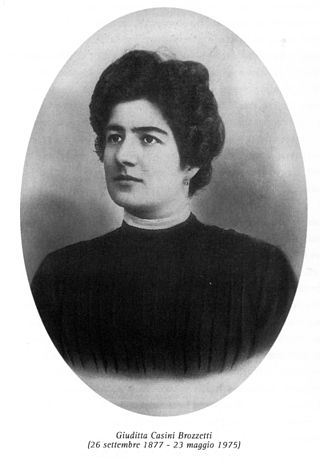Self-guided Sightseeing Tour #2 in Perugia, Italy
Legend
Tour Facts
5.9 km
373 m
Experience Perugia in Italy in a whole new way with our free self-guided sightseeing tour. This site not only offers you practical information and insider tips, but also a rich variety of activities and sights you shouldn't miss. Whether you love art and culture, want to explore historical sites or simply want to experience the vibrant atmosphere of a lively city - you'll find everything you need for your personal adventure here.
Activities in PerugiaIndividual Sights in PerugiaSight 1: Chiesa di Santa Maria di Monteluce
The church of Santa Maria Assunta di Monteluce is a church in Perugia, Italy.
Sight 2: Santa Maria Nuova
The church of Santa Maria Nuova is located in Perugia in via Pinturicchio, in the Porta Sole district and is a parish church dating back to the thirteenth century.
Sight 3: Centro della Scienza P.O.S.T.
POST, an acronym for Perugia Officina per la Scienza e la Tecnologia, is the interactive museum dedicated to the scientific culture of the city of Perugia.
Wikipedia: Perugia Officina per la Scienza e la Tecnologia (IT)
Sight 4: Porta Sole
The Porta Sole, also known as the arch of the Lilies or Montesperelli, is one of the ancient city gates of the Etruscan city walls of the city of Perugia. In truth, the name Porta Sole belonged, before the Arch of the Lilies, to two other gates, now destroyed. Porta Sole is also a district of the historic center of Perugia.
Sight 5: Palazzo Sorbello
The Sorbello Palace is a historic building in Perugia built at the end of the sixteenth century. Located in the city center, a short distance from the cathedral of San Lorenzo, the access portal of the building opens at 9 Piazza Piccinino, in front of the curb of the Etruscan well, an important underground monument of the city of the Etruscan era, whose access is given by some rooms located right in the basement of the same building. Owned since the end of the eighteenth century by the Bourbon di Sorbello marquises, it is currently the seat of the Ranieri di Sorbello Foundation, which since 2010 has given a museum destination to some rooms on the ground floor and the main floor.
Sight 6: Pozzo Etrusco
The Etruscan Well, also known as "Sorbello well" from the name of the noble family which still owns the mansion which includes the structure, is located in the old town of Perugia. Entrance to the well, currently open to the public as a museum, is from no. 18 piazza Danti, through a covered walkway which leads to the underground sections of Palazzo Sorbello.
Sight 7: Cattedrale di San Lorenzo
Perugia Cathedral, officially the Metropolitan Cathedral of St. Lawrence, is a Roman Catholic cathedral in Perugia, Umbria, central Italy, dedicated to Saint Lawrence. Formerly the seat of the bishops and archbishops of Perugia, it has been since 1986 the archiepiscopal seat of the Archdiocese of Perugia-Città della Pieve.
Sight 8: Museo del Capitolo della cattedrale di San Lorenzo
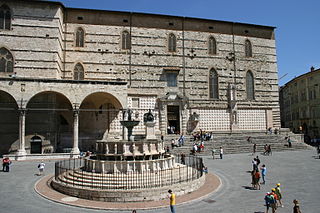
The Museo dell'Opera del Duomo, better known as the Museo del Capitolo della Cattedrale di San Lorenzo, is a museum in Perugia, Italy, adjacent to the Cathedral of San Lorenzo.
Sight 9: Fontana Maggiore
Get Ticket*The Fontana Maggiore, a masterpiece of medieval sculpture, placed in the centre of Piazza IV Novembre, is the monument symbol of the city of Perugia.
Sight 10: Sala dei Notari
The Palazzo dei Priori or comunale is one of the best examples in Italy of a public palace from the communal era. It is located in the central Piazza IV Novembre in Perugia, Umbria. It extends along Corso Vannucci up to Via Boncambi. It still houses part of the municipality, and, on the third floor, the Galleria Nazionale dell'Umbria. It takes its name from the Priori, the highest political authority governing the city in the medieval era.
Sight 11: Galleria nazionale dell'Umbria
The Galleria Nazionale dell'Umbria the Italian national paintings collection of Umbria, housed in the Palazzo dei Priori, Perugia, in central Italy. Located on the upper floors of the Palazzo dei Priori, the exhibition spaces occupy two floors and the collection comprises the greatest representation of the Umbrian School of painting, ranging from the 13th to the 19th century, strongest in the fourteenth through sixteenth centuries. The collection is presented in 40 exhibition rooms in the Palazzo. On the second floor of the Gallery, there is an exhibition space for temporary collections, changed several times a year.
Sight 12: Collegio del Cambio
The Collegio del Cambio is the historic seat of the exchange guild in the Palazzo dei Priori in the city of Perugia, Italy. It was built between 1452 and 1457 and now houses a number of artistic masterpieces.
Sight 13: Palazzo del Capitano del Popolo
The Palazzo del Capitano del Popolo is a historic building in Perugia, Umbria.
Sight 14: Teatro del Pavone
The Teatro del Pavone in Perugia, located in Piazza della Repubblica, is one of the main theaters in the city, curated by the institution called "Accademia del Teatro del Pavone".
Sight 15: Chiesa di San Filippo Neri
The church of San Filippo Neri, also known as the church of the Immaculate Conception or Chiesa Nuova, is one of the most important places of worship in the city of Perugia. Located in the historic center of Perugia on the axis of Via dei Priori, Via della Cupa and Via della Stella, in the Porta Santa Susanna district, it was built in the seventeenth century (1627-1665) on a project by the Roman architect Paolo Maruscelli, and represents one of the most important examples of Baroque in Perugia.
Sight 16: Sciri Tower
The Torre degli Sciri, is a medieval tower dating back to the 13th century, located in Perugia, Italy. It stands in the historic district of Porta Santa Susanna, at the beginning of the Via dei Priori. Reaching a height of 42 meters, it is the last complete such tower remaining in the city.
Sight 17: Trasimena Gate
The Porta Trasimena, also called the Arch of San Luca due to its proximity to the Church of San Luca, is located in Perugia, in Via dei Priori.
Sight 18: Porta di Santa Susanna
The Porta Santa Susanna, or Porta di Sant'Andrea, is a city gate in Perugia, Italy. Located in Via della Sposa, it dates back to the late Middle Ages.
Sight 19: Oratorio di San Bernardino
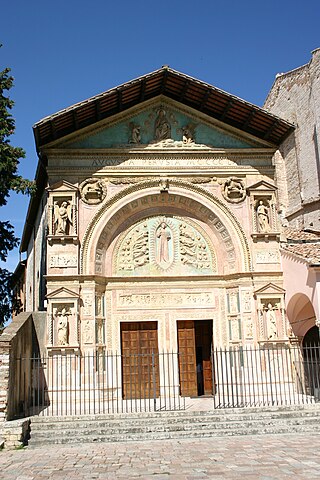
The Oratory of San Bernardino is an oratory in Perugia, in the region of Umbria, Italy, located on Piazza San Francesco next to the basilica of San Francesco al Prato. Dedicated to Bernardino of Siena, the oratory was completed in 1452.
Sight 20: Teatro Morlacchi
Teatro Morlacchi, formerly Teatro del Verzaro, is the largest theater of Perugia. It is named after the musician Francesco Morlacchi.
Sight 21: Arco Etrusco
The Etruscan Arch or Arch of Augustus or Augustus Gate is one of eight gates in the Etruscan wall of Perusia, known today as Perugia. It is one of the only two surviving gates along with the Porta Marzia to the south. It was constructed in the second half of the 3rd century BC and was restored by Augustus in 40 BC after his victory in the Perusine War. Representing the best surviving and most monumental of the Etruscan city gates it opens onto the cardo maximus of the city, corresponding to the modern Ulisse Rocchi Road.
Sight 22: Chiesa di Sant'Agostino
The church of Sant'Agostino is a church in the city of Perugia, located in Piazza Domenico Lupattelli, along Corso Garibaldi, the main street of the Porta Sant'Angelo district.
Sight 23: Porta Conca
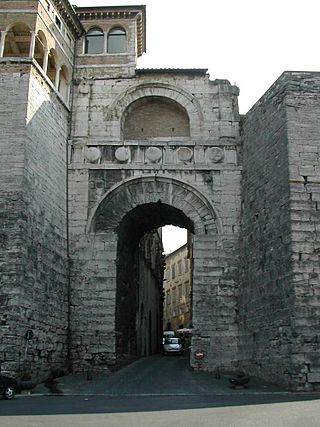
The walls of Perugia are the ancient defensive circle of the city. The city has two walls.
Sight 24: Laboratorio di tessitura artistica a mano Giuditta Brozzetti
Giuditta Casini Brozzetti was an Italian entrepreneur.
Share
How likely are you to recommend us?
Disclaimer Please be aware of your surroundings and do not enter private property. We are not liable for any damages that occur during the tours.
GPX-Download For navigation apps and GPS devices you can download the tour as a GPX file.
